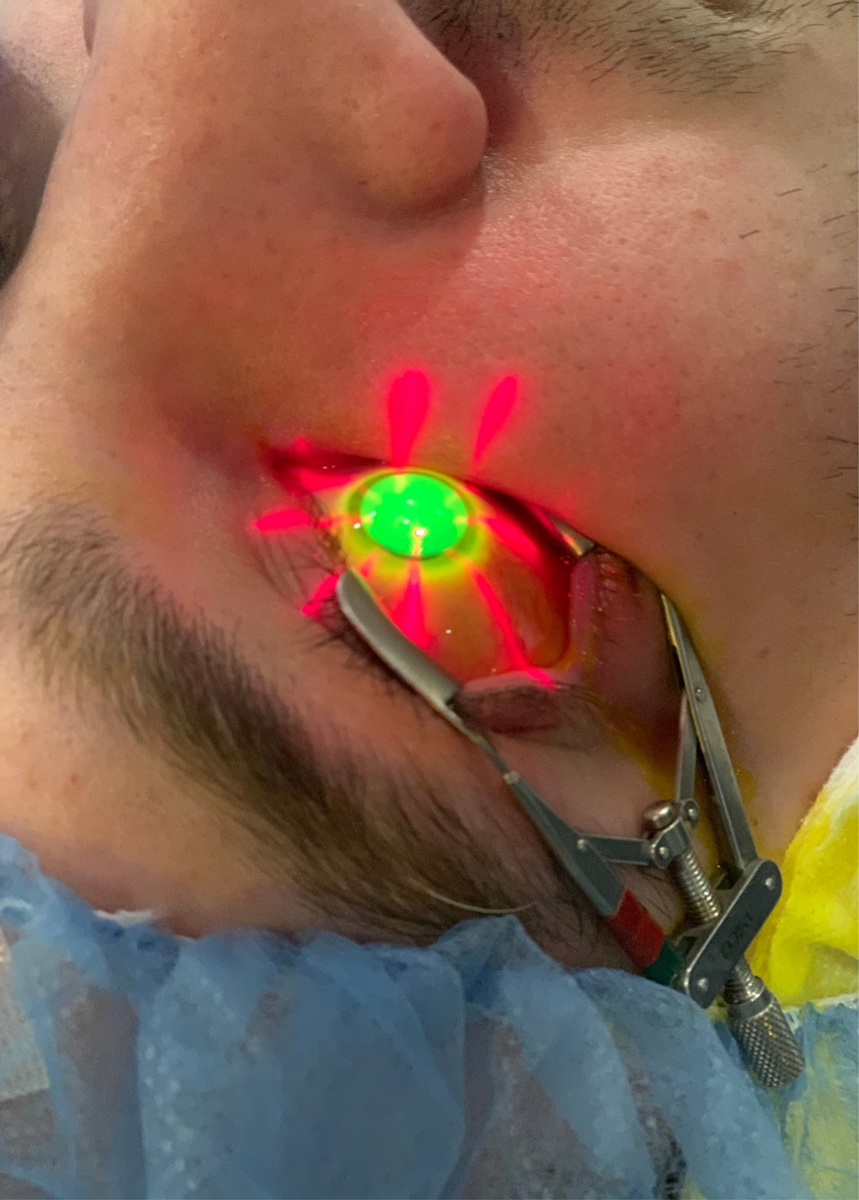 |
|
CXL may be more effective with the use of NE to promote riboflavin infiltration. Photo: Lily Arendt, OD. Click image to enlarge. |
Previously, researchers found that norepinephrine (NE) could affect corneal epithelial integrity; herein, they investigated the feasibility and safety of NE as a chemical enhancer to promote corneal penetration of riboflavin during transepithelial corneal crosslinking (CXL). The team reported that NE serves as an effective enhancer in increasing riboflavin diffusion with limited impairment on the corneal epithelium and has great potential for clinical application.
The investigators first determined the dosage of NE that could promote riboflavin diffusion through the healthy epithelial barrier without inducing epithelial damage in C57BL/6 mice. They then confirmed the safety of NE treatment by morphological and histological examinations of the whole cornea, verifying the efficacy of NE in promoting riboflavin penetration by slit lamp and scanning electron microscope (SEM), as well as corneal biomechanical measurement after CXL. To better fit the clinical scenario, increased NE dosage and shortened riboflavin infiltration time were further evaluated.
The lowest dosage of NE (1mg/mL) that facilitated transepithelial riboflavin permeation was 2μL. No visible corneal structure alteration was observed after NE treatment. SEM indicated dissociation of intercellular junctions among corneal epithelial cells. Homogenous distribution of riboflavin throughout the corneal stroma was observed. NE-treated corneas reached comparable biomechanical properties after CXL, including stress-relaxation curve and elastic modulus, with corneas treated with the commercially available transepithelial drug Peschke TE.
To better fit the clinical scenario, increasing NE up to 5.5μL helped riboflavin infiltrate the corneal stroma within 30 minutes. After CXL with 9mW/cm2 ultraviolet-A for 2.5 minutes, the cornea showed significantly enhanced corneal biomechanical properties with undisturbed corneal endothelium.
“Collectively, our study suggests that NE is safe and efficient in promoting riboflavin infiltration under both the laboratory and clinical CXL settings, exhibiting potential for clinical use during transepithelial crosslinking,” the study authors concluded in their paper.
Liu G, Li T, Qi B, et al. Norepinephrine as an enhancer promoting corneal penetration of riboflavin for transepithelial corneal crosslinking. Transl Vis Sci Technol. February 14, 2023. [Epub ahead of print]. |


